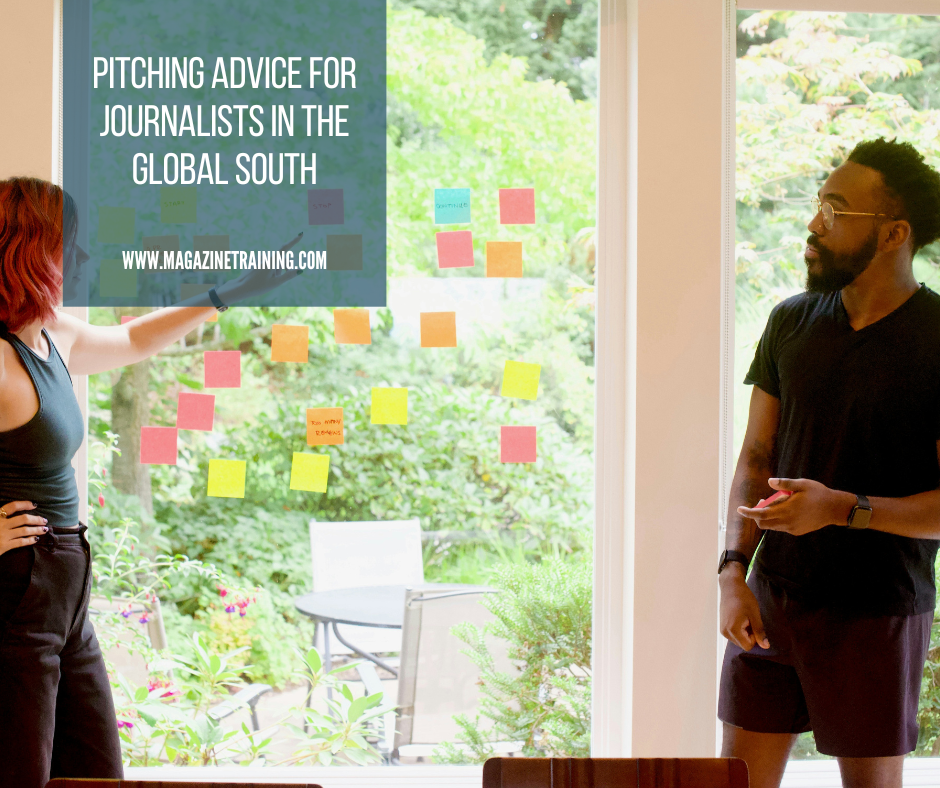
For journalists from the Global South pitching a wide array of outlets, both locally and abroad, can present opportunities to further the reach of their reporting and advance their careers.
The first step is figuring out where to begin.
They must identify where to pitch, and once in the editing process make sure their story’s heart and narrative voice don’t get lost in translation.
Here are some tips to help with the pitching process:
Tips for breaking into global markets
If you already have a story idea in mind, search for prospective publications. Pitch outlets that align with your values and reporting approaches.
One way to gauge how an editor may approach a story is by noting the angles and tones present in their publication’s existing stories about the Global South. Are the authors people of color? Are the stories rife with stereotypes?
Next, pitch your idea. Follow the same guidelines when pitching an international outlet as you would a publication in the Global South. Introduce yourself, add a link to your portfolio and outline your story, including key sources, in approximately 500 words.
Join freelance groups on Facebook and WhatsApp to get a better idea of market rates before accepting an editor’s proposed fee. Freelancing for Journalists and No.1 Freelance Media Women are popular ones.
If you’d like to maintain a regular relationship with an outlet, consider letting the editor(s) know if you have a series of ideas centered around an underrepresented demographic, location or topic. Publications are often on the look-out for ways to diversify their content. If they know you cover a specific region or beat, then they’ll know who to turn to for stories in those areas.
Staying true to your story
But how do you know if a publication will do your story justice? Even well-intentioned editors may display unconscious bias. Look for outlets that utilize an approach that directly tackles stereotypes and preconceived notions. Solutions journalism is one such approach that is gaining popularity.
At its core, solutions reporting highlights people, organizations and theories working to solve issues in society. But instead of feel-good pieces, this approach calls for stories that critically examine efforts to tackle community issues.
Solutions journalism is also favored by many journalists in the Global South. Patrick Egwu, a Nigerian freelance journalist, sees it as a direct response to historically unfair coverage. “Solutions journalism comes into play to highlight solutions to problems facing the Global South instead of just talking about the problems,” he said.
Egwu noted the biases he has seen with some Western publications. “We have seen how stories on wars, conflicts, poverty, and diseases have placed a high premium over stories on innovation, tech, STEM, etc. That’s the stereotype with news treatment in Africa from foreign editors,” he said.
Outlets to pitch
Immaculata Abba, a Nigerian journalist and artist, noted the practical benefits of writing for foreign publications.
“Western outlets tend to pay higher, and I want to be exposed to a market that pays in more stable currencies,” she said. “Nigerians are going to read foreign publication articles, but the odds of foreign people reading my articles published in Nigeria is slimmer. I want to speak to a global audience that is receptive to what I have to say.”
by
Photo by Parabol | The Agile Meeting Toolbox on Unsplash
Related posts
Magazine Training International’s mission is to encourage, strengthen, and provide training and resources to Christian magazine publishers as they seek to build the church and reach their societies for Christ.

